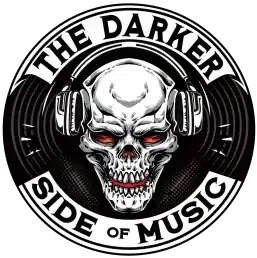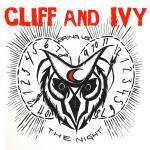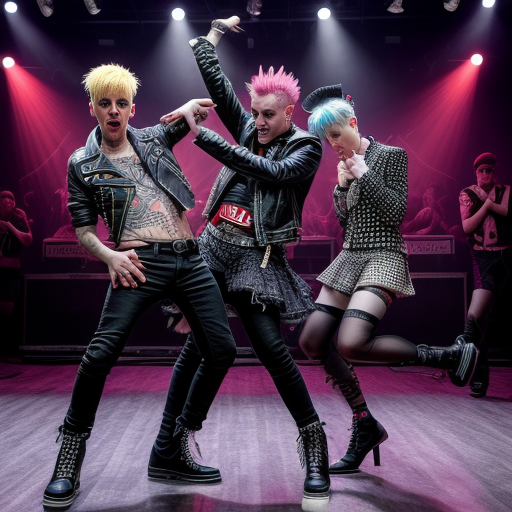
The Unruly Revolution: A Comprehensive Journey Through the History of UK Punk
In the annals of music history, few genres have left a mark quite as indelible as punk. Born out of a fiery rebellious spirit in the United Kingdom during the 1970s, punk rock shattered conventions and revolutionized not only the music industry but also society at large. In this comprehensive article titled “The Unruly Revolution: A Comprehensive Journey Through the History of UK Punk”, we embark upon an ambitious exploration into the origins, evolution, and lasting impact of this groundbreaking musical movement. From its humble beginnings in smoky underground clubs to its explosive emergence onto mainstream stages across Britain, we delve deep into the unruly world of UK punk to uncover hidden stories, iconic bands, political ideologies, fashion statements, and much more. Prepare yourself for an immersive journey that will illuminate both the chaotic beauty and enduring significance of one of Britain’s most influential cultural revolutions – punk rock.
The Birth of Punk: Exploring the Origins and Influences
In the mid-1970s, a musical revolution was brewing in the United Kingdom. With its rebellious spirit and raw energy, punk rock emerged as a powerful force that would forever leave its mark on music history. It all began in London’s underground scene, where disenchanted youth sought an outlet for their frustrations.
Drawing influences from American bands like The Stooges and The New York Dolls, UK punk developed its distinct sound and aesthetic. Ramones’ blistering speed and aggressive guitar riffs became synonymous with the genre, inspiring countless British musicians to pick up instruments and create their own brand of anti-establishment noise.
DIY Ethos: Embracing Individuality
One defining characteristic of UK punk was its do-it-yourself (DIY) ethos. Rejecting conventional notions of professional musicianship, aspiring punks embraced a rough-around-the-edges approach to both sound and style. Dressed provocatively in torn clothes adorned with safety pins and intentionally unkempt haircuts, they championed individuality over conformity.
This mindset extended beyond fashion choices; it permeated every aspect of punk culture. From self-releasing albums through independent labels to organizing gigs at rundown venues or even warehouses illegally converted into makeshift concert spaces – punks were resourceful when it came to bypassing traditional gatekeepers in order to make themselves heard.
Political Unrest: Channeling Discontent
The birth of UK punk occurred against a backdrop of social unrest in 1970s Britain. Economic turmoil, political disillusionment, racial tensions – all provided fuel for this explosive movement that gave voice to those who felt marginalized by society.
Punk songs often addressed themes such as unemployment ("Career Opportunities" by The Clash), police brutality ("White Riot" by The Clash), or simply expressing rage towards authority figures ("Anarchy in the U. K." by Sex Pistols). These direct and provocative lyrics resonated with alienated youth, igniting a sense of unity among the disaffected.
Through music, fashion, and uninhibited self-expression, UK punk acted as a catalyst for social change. It challenged societal norms and empowered generations to question the status quo. The unruly revolution had begun.
DIY Ethos: The Rise of Independent Record Labels and Fanzines
The Rise of Independent Record Labels and Fanzines
Embracing a do-it-yourself ethos, UK punk brought forth an explosion of independent record labels and fanzines. These underground platforms became crucial in spreading the rebellious ideology and music of the movement.
-
Independent Record Labels
As major labels shied away from punk’s unconventional sound and message, independent record labels emerged as pioneers. Small enterprises like Stiff Records and Rough Trade Records gave artists artistic control, allowing them to unleash their raw creativity without compromise. This newfound freedom fostered an environment where bands could challenge societal norms through their music.
-
Fanzines: Rebellion on Paper
Punk-inspired fanzines sprouted across the UK, giving grassroots voices a platform to be heard. Self-published and amateurish in appearance, these photocopied pamphlets captured the spirit of defiance that fueled the movement. From interviews with band members to visceral album reviews and thought-provoking political commentary, fanzines became a vital means for sharing alternative viewpoints outside mainstream media channels.
This flourishing DIY ecosystem within UK punk not only circumvented traditional gatekeepers but also empowered countless bands and individuals to have their creative work seen, heard, or read by audiences eager for something new.
The Sex Pistols and the Anarchy in the UK
The Sex Pistols burst onto the punk scene in the mid-1970s with their provocative music and rebellious attitude. Their iconic song "Anarchy in the UK" became an anthem for disaffected youth across the country.
- Led by frontman Johnny Rotten, the band’s raw energy and confrontational lyrics challenged societal norms and ignited a sense of rebellion among young people.
- The Sex Pistols’ aggressive performances, often marred by controversy, shook up established rock conventions and paved the way for a new wave of British punk musicians.
- With songs like "God Save The Queen," which mocked Queen Elizabeth II during her Silver Jubilee Year, they directly targeted authority figures and institutions.
Their influence on punk culture cannot be overstated. Despite being together for only a few years before their breakup in 1978, The Sex Pistols left an indelible mark on music history as catalysts for change, sparking a movement that has endured to this day.
Punk Fashion: Rebellion on the Streets
Punk fashion was a visual expression of rebellion and nonconformity.
-
DIY Aesthetic:
The do-it-yourself (DIY) aesthetic became synonymous with punk fashion. Punks rejected mass-produced clothing, opting instead for customized outfits made from found items or inexpensive materials. Safety pins were used to hold garments together, symbolizing both utility and defiance.
-
Distinctive Style:
Punk fashion encompassed a distinctive style that challenged societal norms and conventions. Vibrant hair colors, such as neon pink or green, adorned mohawks or styled into spiky tufts. Bands like the Sex Pistols popularized ripped t-shirts with provocative slogans while leather jackets embellished with studs and patches added an air of rebellion.
-
Anti-Establishment Symbol:
Beyond its expressive nature, punk fashion served as a form of protest against mainstream society and institutions. The aggressive appearance projected by punks often provoked negative reactions from those who adhered to traditional standards of dress and grooming – thus embodying the spirit of rebellion within UK punk culture.
The Clash and the Politics of Punk
- In the vibrant landscape of UK punk, one band stands out for their raw energy and political activism: The Clash.
- Formed in 1976, The Clash quickly gained a reputation for their explosive live performances and rebellious attitude.
- Their lyrics tackled social injustice, racism, unemployment, and other pressing issues of the time.
- Songs like "London Calling" served as anthems for disenfranchised youth longing for change.
- While many bands chose to embody nihilism or apathy, The Clash embraced an activist spirit that resonated with their audience.
An Outsider’s Anthem
- One of The Clash’s most iconic songs is "White Riot," released in 1977.
- It became an anthem against racial inequality during a time when tensions were high between ethnic communities in London.
- With powerful lyrics like "white riot—I wanna riot / white riot—a riot of my own,"
The Clash called on listeners to fight back against societal divisions.
Punk Goes Mainstream: The Impact of the Ramones and the Buzzcocks
When it comes to punk’s impact on mainstream music, two bands stand out: the Ramones and the Buzzcocks.
The Ramones burst onto the scene in New York City, bringing their stripped-down, high-energy sound to a genre dominated by long-haired rock gods. With rapid-fire songs like "Blitzkrieg Bop" and "I Wanna Be Sedated," they captured the essence of punk rebellion in just a few short chords.
Across the pond in Manchester, England, another band was making waves. The Buzzcocks blended catchy hooks with raw emotion to create anthems like "Ever Fallen in Love (With Someone You Shouldn’t’ve)" that resonated with fans far beyond punk’s boundaries.
Despite their differences in style and geography, both bands shared a common goal: to challenge musical norms and ignite a countercultural movement. Their influence can still be felt today as countless artists point to them as inspirations for pushing boundaries and breaking free from traditional conventions.
The Legacy Lives On
- Both bands helped pave the way for future generations of punk musicians.
- They proved that you didn’t need flashy guitar solos or complex arrangements to make an impact.
- The Ramones’ fast-paced aggression set a blueprint for hardcore punk while inspiring pop-punk acts like Green Day.
- Meanwhile, the Buzzcocks introduced vulnerability into their music that would influence alternative rockers such as Nirvana.
Their influence on shaping not only UK punk but also global music cannot be understated. From underground subcultures to arenas sold out worldwide, these unruly revolutionaries left an indelible mark on mainstream culture—a testament to their enduring power within popular music history.
Gender and Punk: Breaking Down Barriers
Punk rock emerged in the late 1970s as a subculture that challenged societal norms, including traditional gender roles. It provided a platform for individuals to express themselves freely, unbound by stereotypes or expectations. Women played a crucial role in this movement, shattering barriers and leaving an indelible mark on the punk scene.
- Outspoken Feminism: Female musicians such as Siouxsie Sioux of Siouxsie and the Banshees and Poly Styrene of X-Ray Spex used their voices not only through music but also through outspoken feminism. They addressed issues like women’s rights, inequality, and sexual harassment with no hesitation.
- Smashing Stereotypes: Punk allowed both men and women to challenge gender conventions through fashion choices that often blurred boundaries – short haircuts, leather jackets, torn clothing – rejecting conventional notions of femininity or masculinity.
- Equality on Stage: The punk scene defied gender norms by creating spaces where women could actively participate onstage alongside male counterparts. Bands like The Slits showcased raw talent while dismantling patriarchal structures that dictated who should perform in bands.
The fusion of punk ideology with feminist values created a powerful force confronting sexism in society head-on during an era when it was sorely needed.
The most successful uk punk bands of all time
The Most Successful UK Punk Bands of All Time
The Clash: Formed in 1976, The Clash quickly became one of the most iconic punk bands in the UK. Known for blending elements of reggae, ska, and rockabilly into their music, they brought a unique sound to the genre. Their explosive live performances and politically charged lyrics resonated with audiences worldwide.
Sex Pistols: Perhaps the most notorious band of the punk era, Sex Pistols burst onto the scene in 1975. With their raw energy and rebellious spirit, they shocked both audiences and authorities alike. Despite a short-lived career before disbanding in 1978, their impact on punk rock is immeasurable.
Buzzcocks: Emerging from Manchester’s vibrant music scene in 1976, Buzzcocks blended pop sensibilities with punk attitude. With addictive melodies and clever songwriting by frontman Pete Shelley, they achieved commercial success while still maintaining an edge that appealed to punk fans.
*These are just a few examples; many other influential UK punk bands such as The Damned and Siouxsie & The Banshees also left an indelible mark on this revolutionary musical movement.
Top UK Punk Bands
Punk rock exploded onto the British music scene in the late 1970s, creating a seismic shift in the industry. Here are some of the most influential bands from this unruly revolution:
- Sex Pistols: The epitome of punk ethos, their debut album “Never Mind the Bollocks, Here’s the Sex Pistols” turned heads and provoked outrage.
- The Clash: Combining punk with reggae and ska influences, they pushed boundaries and delivered politically charged anthems like “London Calling”.
- The Damned: Known for their raw energy, they were one of London’s first punk bands to release a full-length album titled “Damned Damned Damned”.
- Buzzcocks: With their catchy pop-punk sound and witty lyrics, hits like “Ever Fallen in Love (With Someone You Shouldn’t’ve)” solidified their place in punk history.
- The Ramones: Though technically American, they played a crucial role in shaping UK punk with tracks like “Blitzkrieg Bop” radiating an infectious rebellious spirit.
- Siouxsie & The Banshees: Fronted by Siouxsie Sioux, their dark and brooding post-punk sound made them pioneers of goth punk.
- Joy Division: Sorrowful yet captivating, Ian Curtis’ haunting vocals defined this band’s distinctive post-punk sound before tragically ending his life at just 23 years old.
- Subhumans: Their intelligent lyrics addressed social issues while fast-paced songs like “Religious Wars” showcased their furious DIY approach to punk.
- Crass: Known for combining political activism with aggressive music through tracks like “Do They Owe Us A Living?”, Crass paved the way for anarchist punks everywhere.
The Decline and Legacy of UK Punk
After reaching its peak in the late 1970s, UK punk began a gradual decline. The movement’s energy and rebellious spirit started to wane as many bands disbanded or pursued different musical directions. Additionally, internal conflicts within the punk scene arose, leading to fragmentation and a loss of unity.
Factors contributing to the decline:
- Commercialization: As major record labels sought to capitalize on popular subcultures, they began signing various punk bands. This commercialization resulted in an influx of watered-down, mainstream acts that diluted the essence of punk.
- Changing cultural climate: By the early 1980s, society had shifted politically and socially, dampening some of punk’s revolutionary fervor. Issues such as unemployment seemed less pressing than before.
- Evolving musical trends: New genres emerged that captured youth attention – post-punk and new wave being two prominent examples – offering fresh sounds that appealed to those seeking experimentation beyond traditional three-chord punk rock.
Despite its eventual fade from center stage, UK punk left behind a lasting legacy.
Key aspects of UK Punk’s legacy:
- Socio-cultural impact: Through its confrontational style and provocative lyrics addressing social issues like unemployment and political dissatisfaction, UK punk challenged societal norms while inspiring subsequent generations.
- Fashion influence: Iconic symbols such as mohawks, leather jackets covered in band patches along with safety pins became synonymous with British rebellion through their adoption by punks worldwide.
- DIY ethos: Fueled by limited resources and a desire for creative expression outside mainstream avenues, many influential DIY music scenes across various genres emerged following the self-sufficient model forged by early punks.
In conclusion, although it eventually lost its grip on popular culture- partially due to commercialization- UK punk remains an important part of history known for its socio-cultural impact, fashion influence, and DIY ethos that planted the seeds for future musical revolutions.
Punk Across the Pond: The American Influence on UK Punk
The American Influence on UK Punk
Despite originating in the United States, punk rock quickly made its way across the pond and inspired a whole new wave of rebellion in the United Kingdom. In fact, one could argue that without American punk, UK punk as we know it may never have existed.
- Introduction to American Punk:
American bands like The Ramones and The Stooges were key players in shaping the sound and attitude of early punk music. Known for their raw energy and stripped-down instrumentation, these American acts laid the foundation for what would become UK punk.
- The Clash’s Transatlantic Connection:
London-based band The Clash is often credited with bridging the gap between American punk and British sensibilities. Inspired by both sides of the Atlantic, they incorporated elements from reggae, ska, and even rockabilly into their music. This fusion set them apart from other UK bands at the time and solidified their status as pioneers of cross-cultural musical influence.
- Sex Pistols’ Infamous U. S. Tour:
In 1978, Sex Pistols embarked on an ill-fated tour across America which ended in chaos after just a few shows. However brief their visit may have been, it left an indelible mark on both sides of the Atlantic. Their confrontational style influenced many future British punks who sought to emulate their rebellious spirit.
Overall, while UK punk had its unique characteristics shaped by socio-political issues closer to home (as explored further below), one cannot deny that it owes much to its transatlantic cousins for igniting a fire that would forever change British music history
Punk Revival: The Subgenres and Continued Relevance of Punk Today
Despite its rebellious origins in the 1970s, punk music has evolved over time, giving rise to various subgenres that continue to influence and inspire artists today. One notable subgenre is pop-punk, which combines the catchy melodies of pop music with the high energy and DIY ethos of punk. Bands like Green Day and Blink-182 gained mainstream success by infusing their raucous sound with melodic hooks and relatable lyrics.
Another significant subgenre within the punk revival movement is skate punk. Originating in Californian skateboarding communities, this style features fast-paced guitar riffs, aggressive drumming, and anthemic choruses that capture the adrenaline-fueled spirit of extreme sports. Legendary bands such as Bad Religion and NOFX have helped popularize skate punk globally while staying true to its rebellious roots.
Punk’s continued relevance can be seen through its enduring influence on contemporary genres like indie rock and emo. Many modern bands draw inspiration from punk’s raw authenticity, channeling their frustrations into powerful social commentaries or introspective lyrics about personal struggles. With its unapologetic attitude and DIY ethos, punk remains a symbol of individuality and resistance against societal norms – making it an indispensable part of musical history that continues to resonate with audiences today.







